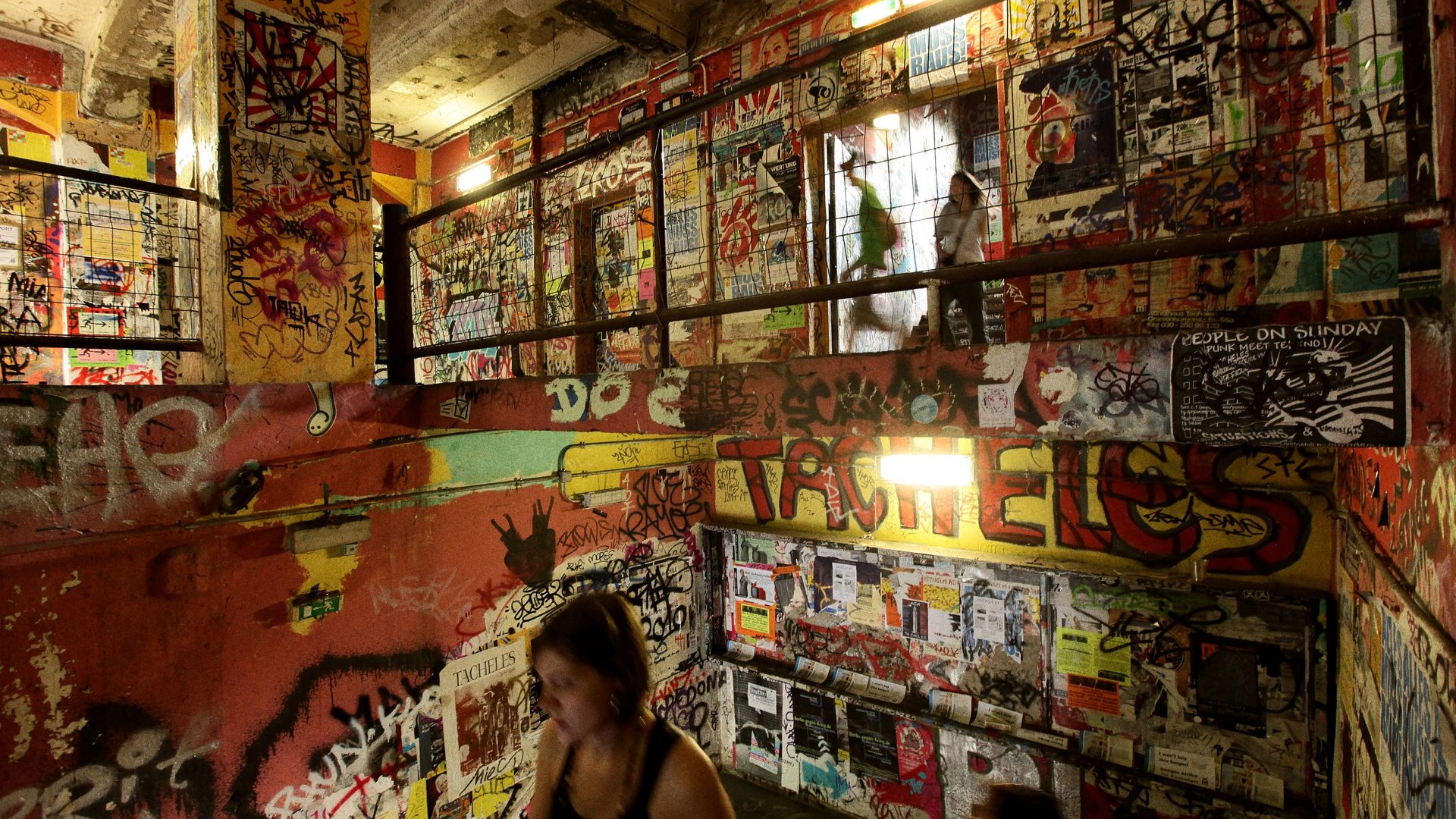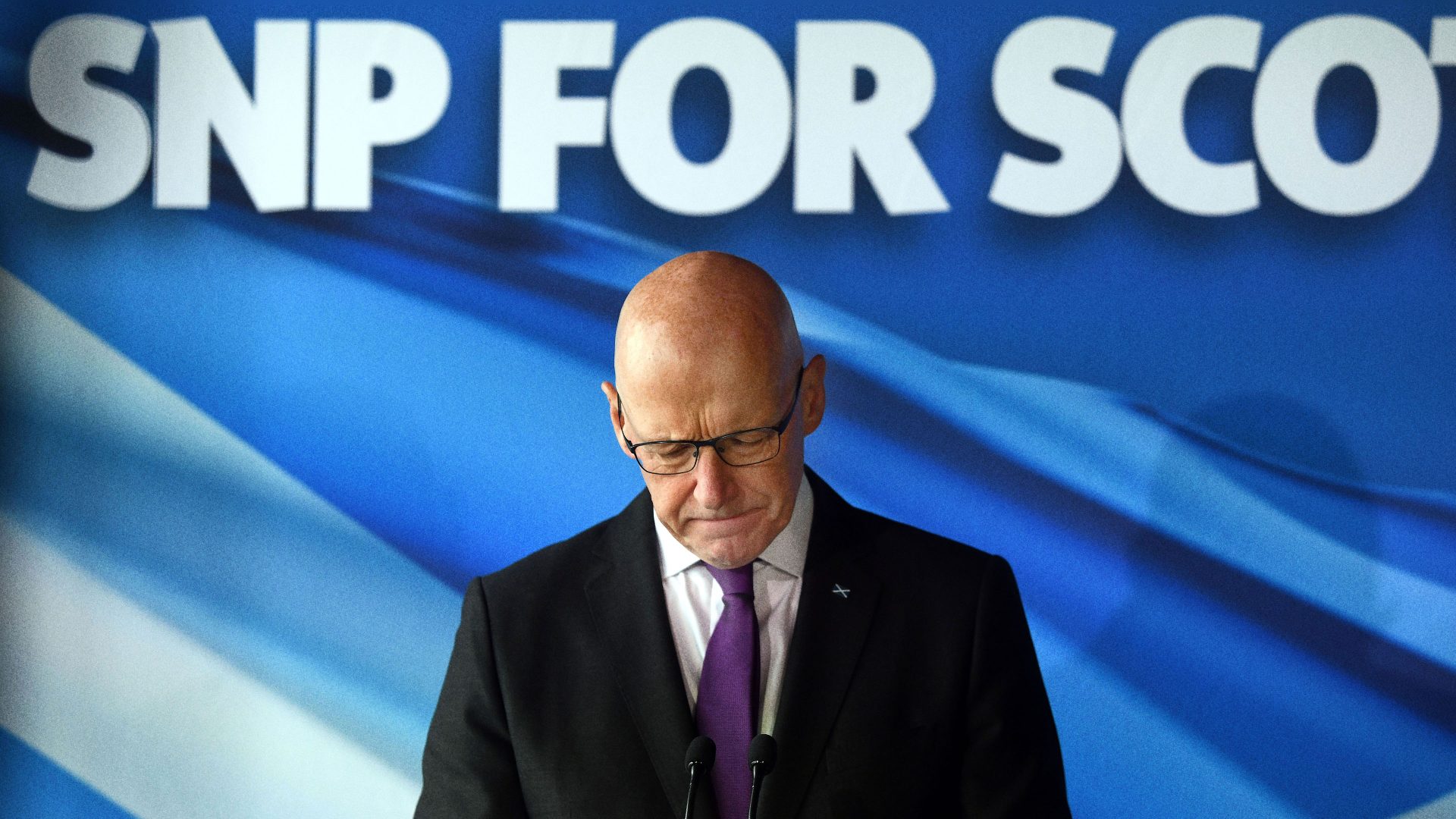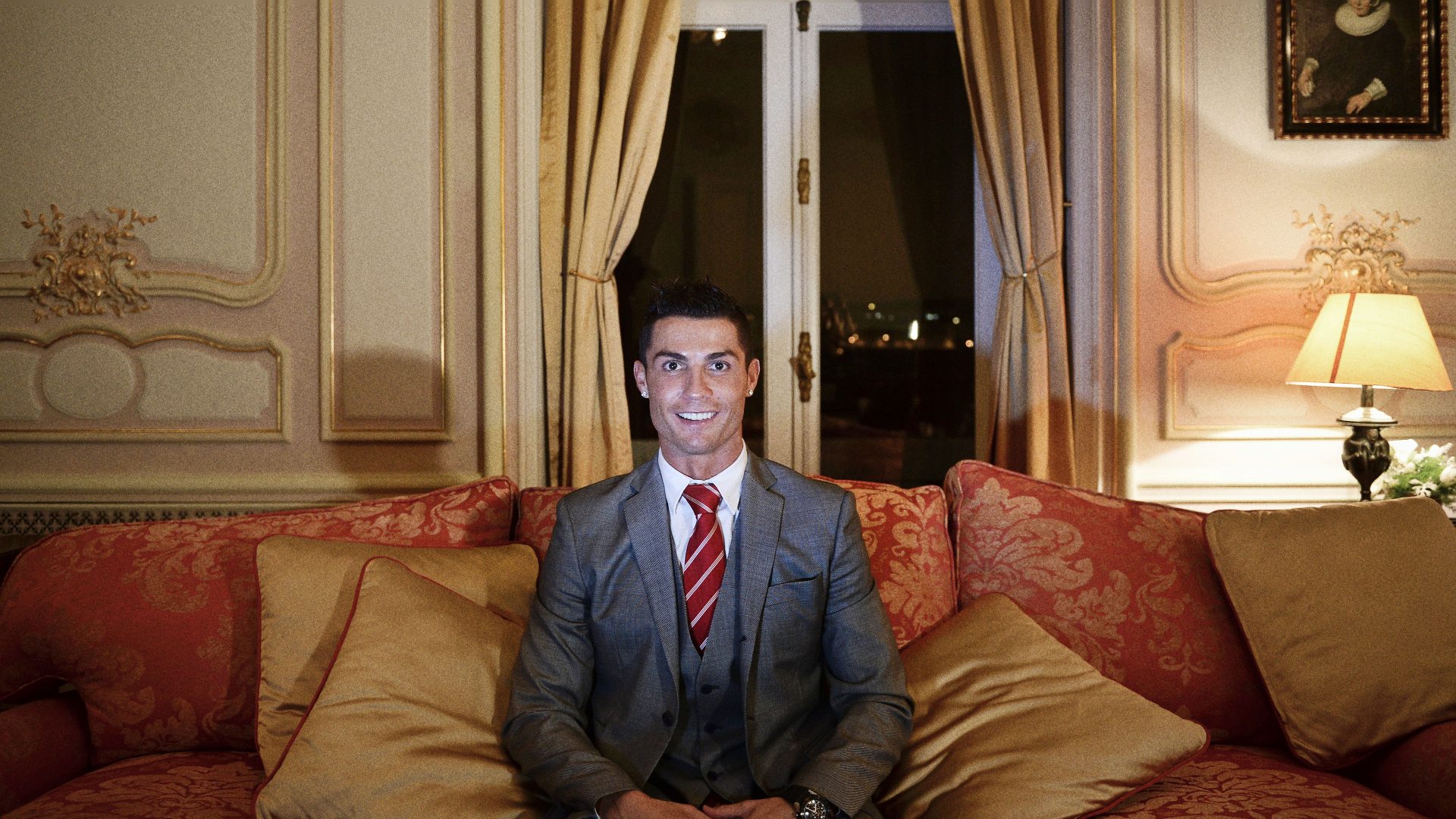I thought legendary Berliner Mark Reeder would be spitting into his milchkaffee when we met in Kreuzberg. Reeder’s been here in Berlin since the late 1970s producing records, managing bands (including Joy Division on their German tour), featuring in films (B-movie), and putting on underground gigs on both sides of the Wall during the ’80s.
But now the country’s “traffic light’’ coalition has broken down over a stagnant economy, and the 35th anniversary of the Mauerfall has passed, other borders are going up: in September, the Berlin senate suddenly announced 10% cuts in the city’s arts budget, starting in January. This will cause huge disruption across theatres, galleries, museums and memorials, all of which have already made their plans for the year ahead.
But Reeder, originally from Manchester, urges me to keep things in perspective. “You’ve got to remember that Berlin’s arts budget is double that of the whole of the UK’’. Which is a good point; the city is starting in a relatively strong position, but, socially and economically, it can’t afford to diminish its status as Europe’s free-thinking, endlessly transforming centre of culture. Last week, I joined 2,000 other cold souls protesting the cuts in a #BerlinistKultur demo in the drizzle at the Brandenburg Gate. There’s also a public petition with over 90,000 signatures.
I’m frequently at the Schaubühne, the city’s most innovative theatre, especially during its FIND festival of international new drama. Director Thomas Ostermeier points out that the proposed cuts will result in a hundred fewer performances a year, hitting freelance artists the hardest. What’s more, “there would no longer be any islands between gentrification and precariousness where people think about what it means to be human’’.
Round the corner from my mattress in Mitte, there’s the Sophiensaele, an independent performing arts venue in a beautiful early 20th-century building that once housed the Berlin Craftsmen’s Association, and witnessed speeches by Rosa Luxemburg and Karl Liebknecht.
“There are more than enough interested parties who are just waiting to turn the Sophiensaele into another flagship store,’’ says co-director Jens Hillje. Which is what happened to Tacheles, also in Mitte, a sprawling alternative arts site, a symbol of activist-anarchist Berlin, where I used to go for a beer amid the metal sculptures in the yard. It’s now a commercial gallery, a museum of its former function, replete with pricey shop in an upmarket arcade.
Rents in Berlin have gone up 150% in the last few years, and I know many artists who have been forced out of their studios in Wedding. Meanwhile, Trump-fleeing yanks and Brexiles, with money to spend, are coming the other way, pushing up prices and joining long queues for apartment-viewing in the city that Reeder still regards as “Europe’s last bastion of creative freedom.’’
But for how much longer? Aren’t the latest cuts further stifling the independent scene and the critical thinking that goes with it? Berlin thrives as a place of reinvention and resistance but there is a real threat that #BerlinistKultur will be usurped by BerlinIsstKultur, Berlin eats culture.
In my neighbourhood, the streets are teeming with Wolt bikers delivering food, or with hipster-tourists queueing for gelato, hand-pulled noodles, or cinnamon rolls before taking in a mainstream corporate event at the arena now sponsored by Uber Eats. Consumption of the brand “Berlin” is steadily draining the city’s lifeblood of subversive spaces and collectives.
At the Human Rights Film Festival at the Kino in der Kulturbrauerei a couple of weeks ago I watched Guardians of Truth: Julian Assange and the Dark Secrets of War. Though panellists drew comparisons with Palestine, there was a conspicuous lack of the usual open mic for the audience. Instead, I witnessed plenty of popcorn being munched by the Prenzlauerberg cognoscenti who’d rather not speak with their mouths full.
With the arts cuts certain to lead to a dramatic reduction in the hiring of overseas artists, aren’t the voices of Berlin’s famously international scene also being slowly muted?
“Especially in times of crisis, culture is the foundation of our social cohesion,” said Monika Grütters, the minister for culture and media back in 2021, announcing a 6.6% rise in arts funding. Indeed, Angela Merkel increased Germany’s arts budget by 85% during her time as chancellor.
Those days are over, but Mark Reeder remains optimistic. He’s just been on a panel selecting 40 night-clubs to receive €10,000 each from the state. “You’re not going to get that happening in the UK! In Berlin, it’s always about taking the opportunity to utilise what you have.’’
JA Hopkin is an author and freelance journalist



